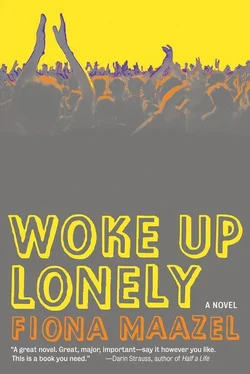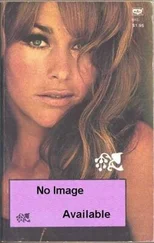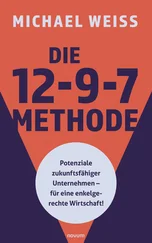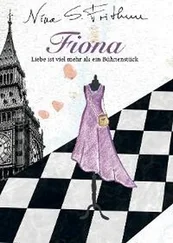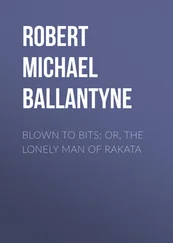One of her pupils was bigger than the other, as though to render the distribution of wherewithal that characterized her inner life. Much passion, no hope. Bold moves, no endgame, though the sequence of events that had gotten her here had been nothing if not a great match ranged across the board.
She sat on the floor. The tile was cool under skin. Even if she got to Cincinnati in time, what could she make happen? A guy who detains four federal employees has no intention of coming out alive. So for starters, her job would be to change intent. What she needed was a rhetoric of persuasion. How to spellbind in five minutes, because that was about all the patience the feds had left for this. Frank Spearman, who tried to talk down Randy Weaver at Ruby Ridge, wrote out what he was going to say on index cards. So that’s what she would do.
She found a pen in her bag. Checked her watch. She numbered her pages. She wrote:
1. Lo, if I’m reading this out loud, it’s because you still haven’t come out and time is not on your side. But I’m not sure what to say. You think you screwed up? Is that the problem? Let me tell you about screwing up. Maybe it will help.
2. I am an eavesdropper and a snoop. This you know. But what you don’t know is how it all started for me. It started when I was a kid. My dad had been in the Arctic in ’58, so I read everything about the International Geophysical Year and also a Time magazine article about a daring rescue — twenty scientists stuck on Drift Station Alpha as it broke apart, this mile-long ice floe, maybe 150 feet deep, that meandered around the North Pole while guys like my dad took notes on zooplankton and also on what the Russians were saying to each other from one submarine to the next. In ’58, six years after the NSA came to life and eight years after its predecessor failed to predict the Korean War or the PRC’s intervention, no one was messing around. SIGINT, COMINT, ELINT, were the order of the day, and so my dad spent months adrift in the Arctic Ocean, where there is no horizon, no color threshold between earth and sky, just the white-ice pageantry of one lonely day kissing its way into the next.
3. Some families have a swing set in their yard; we had an octoloop. A giant antenna, looked like a stop sign, three-quarter-inch copper pipe and telephone cable with gimbaled support beam through the middle, used to snatch VLF sound waves from the universe. Schumann resonances. Tweeks, whistlers, sferics — the low-frequency din life makes beneath our capacity to hear it. The physicist Schumann, who predicted the resonance of lightning emissions, was not related to the German composer of the same name, but I find it no small coincidence, the one a conjuror of some of the most arresting melodies on earth and the other sensitive to music of the earth’s devising. My dad used to amplify what came through the loop — think fat in a hot skillet — and listen to it like opera while I did my homework on the carpet. Our soundtrack? The world’s underbreath, one breath at a time.
From there it was easy to augment my fixation with voice. Voices in code, voices out loud, voices in whose timbre were hints of regret for everything the speaker hadn’t done or said now that it was too late. Who wouldn’t want to listen to that?
4. After the air force, my dad worked for Disneyland, which you probably remember. Back then, I was at the age when everything your parents do seems lame, but I didn’t mind the Horseshoe Revue and even got to like it after I spied my dad with Slue Foot Sue, costar of the revue, with her breast poised above his mouth, and him on his knees, going for it like a circus seal.
I watched the scene play out. And realized, with some measure of shock, that I would not tell my mother or confront my father, but that I wouldn’t suffer the isolation secrecy brings it its wake, either. Quite the opposite. I felt closer to my dad for knowing he was in pain. I also felt closer to knowing what I wanted to do with my life.
5. Maybe I’m not doing a good job of this. But how can I explain my choices without explaining it all? God knows I didn’t tell you much when we were married. So, first my dad had an affair; then came my brother’s surfing accident. About that part, my family’s grief was private, even as its furnishings were hard to miss. We never spoke his name. I don’t know how it happened, but from one day to the next, his name was taboo. His photos vanished from the fridge, his trophies and gear, and all were deposited in his room, whose door stayed locked. I figured my parents had fondled each item and packed it gently in a box while I was at school. But no, they had hired a moving company to shove it all in a few plastic crates and pile them in the boy’s closet. That’s what it said on the order form I saw tacked to the fridge— The boy’s closet . After that, I figured they crept into his room at night, or maybe while I was at school, to go through his stuff and whisper his name. I tied a length of thread from the doorknob to the frame so that if it opened even an inch, the thread would break. Then I checked this thread, which never broke, every day for five years.
My mom took up with someone who worked at Disney’s rival amusement venue, Knott’s Berry Farm, while my dad kept on with Slue Foot. I bought books about satellites and radio waves. My dad lost his arm to a crossbeam in the theater where he worked; Disney paid him millions. My mom left Knott’s, and then it was like a contaminant had settled in the house. Something dark and horrible that confined us to our own lives and made it impossible for us to talk to each other ever again.
6. Any idea how hard it is to get security clearance when you have no fingerprints? It took months, and in those months I could have gone to grad school, changed paths, started fresh. Instead, it was three years of Korean and a year’s worth of NSA interviews, whose gist ranged from scenario to psych. A thousand questions. A thousand million. Your boyfriend threatens to break up with you unless you tell him what you did today; how do you respond? Do you think that family is more important than work, and if so, would you compromise your work to protect them? Already, these people seemed to know the grim stuff of my ambition.
7. My first job: Middle of nowhere, Australia. Eight hours a day listening to the North Koreans. Most tracking stations are remote, for the obvious reasons of privacy and uncluttered airspace, but what really matters is being within the footprint of a satellite’s broadcast range. Hence: Nowhere, Australia, under Intelsat 2, stationed over the Pacific Ocean and handling the equivalent of 1,100,000 pages of text per second. It was grueling work, and peculiar for its mix of boredom and anxiety, both of which verged on the unbearable.
8. When you eavesdrop, you have to probe what you hear for nuance and sarcasm, doublespeak and lies. You have to wonder if they know you’re listening. You don’t have the pressure of an analyst, who has to slog through what you’ve translated and decide what’s important, but you do have the problem of making sure you transcribe accurately the intent of what you hear. Old friends and colleagues share a language no one can fathom without initiation. It took me three years of listening to North Korea’s vice foreign minister before I could diagnose the timbres of his voice, because the man never said what he meant, and I mean never.
9. There are so many ways to die, it boggles the mind. But the thing that’s really going to get us, and what people don’t talk much about since the end of the Cold War, is nuclear proliferation. I was sixteen when The Day After aired; it wrecked me for months. Me and everyone else, though apparently the movie’s premise — that there would actually be a day after nuclear holocaust — was supposed to gladden our response to the prospect. It didn’t. In 1983, the Non-Proliferation Treaty was thirteen years old. Its gist: countries that have weapons should not help countries that don’t to acquire them, but if you do help, not much harm will come to you, because the NPT has no teeth. Join the NPT regime and you can leave anytime without consequence. If it’s in the interest of Consarc, Hewlett-Packard, and Honeywell to sell “dual use” nuclear equipment to the highest bidder, go right ahead. The International Atomic Energy Agency can inspect only nuclear facilities that declare themselves, and need permission from the host country to inspect anything else, and, on the crazy chance anyone gets upset about the nine thousand ways you have violated the treaty, it doesn’t matter, because the UN will not vote to impose sanctions for fear of reprisal. In short, Iran, Libya, Algeria, North Korea, Pakistan, India, South Africa, Israel, and Iraq — not to mention all the states that tumbled out of the Soviet Union — either had the bomb and weren’t talking about it or were getting there quick. There were some successes — Libya and South Africa, for instance — but all it takes is one North Korean twink with pompadour, and wham: the day after.
Читать дальше
